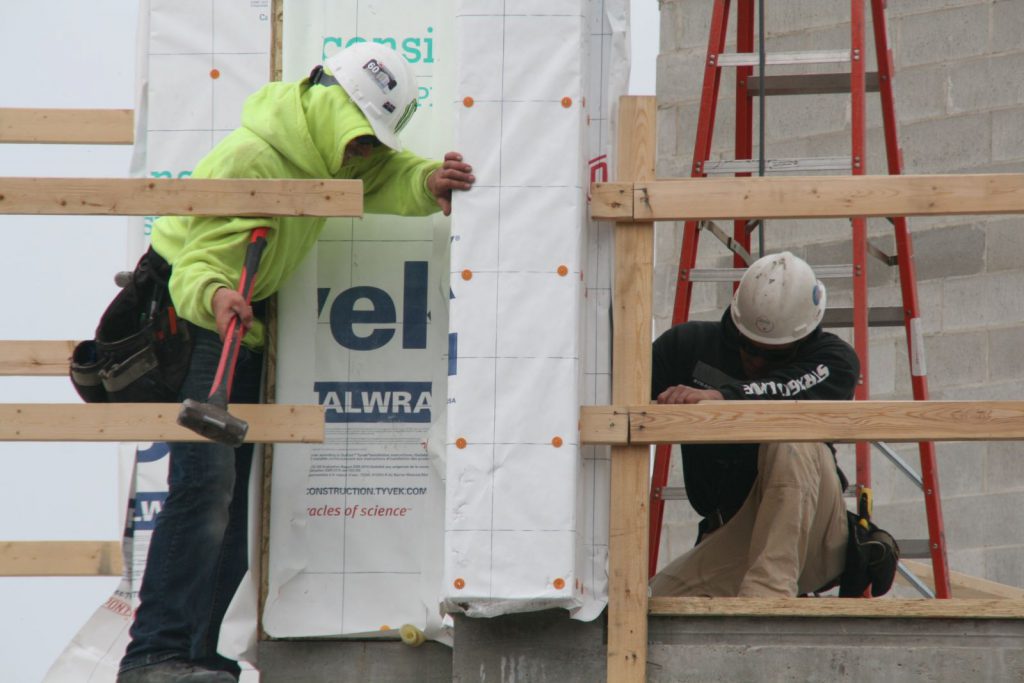Many Companies Face Worker Shortage
Cities like Milwaukee have simultaneous problem of unemployment and unfilled jobs.
The National Federation of Independent Businesses (NFIB) says many businesses continue to deal with a shortage of workers, despite historically high levels of unemployment caused by the coronavirus pandemic.
The trade group for small businesses found in its November jobs report that nationwide, 34 percent of survey respondents reported open positions they were unable to fill. That’s a slight increase from October when that number was 33 percent.
Of those respondents who struggled to fill open positions, 89 percent said there were few or no qualified applicants for the jobs they were hiring for.
“A lot of people simply cannot switch from one type of job to another,” Deller said in an email. “(If) I am a restaurant chef … or manager, I cannot just decide I’m going to flip over and become a welder or plumber.”
Deller also said geographic mismatches can exist when one city or region of the state has concentrated job losses, and an entirely different area has concentrated job openings. Layer on top of that issues with pay and cost of living, and many workers are left with strong disincentives to take certain jobs.
As an example, Deller pointed to Milwaukee, which he said has a lot of unemployed or underemployed workers despite the fact that there are many job openings in the outer suburbs of Milwaukee. But if the pay at those jobs doesn’t justify the commute and housing close by is too expensive, those who are looking for work are more likely to look elsewhere.
Construction, Manufacturing, Distribution Industries Hiring
NFIB Wisconsin state director Bill Smith said the construction industry is among those with the largest need for workers right now. The construction industry typically sees seasonal layoffs in the winter months, but a boom in housing sales spurred by record-low mortgage rates has kept up demand for new housing construction, according to Smith.
“Construction often needs skilled labor, and that’s where the shortage comes into play,” Smith said. “They need workers generally that have a little higher skill level, and they’re just not able to fill those positions, so it’s creating a serious shortage in the construction industry.”
Lentz said the shortage can be explained in part by our changing habits during the pandemic. During the holiday shopping season, for example, a large rise in online shopping is expected, which in turn creates hiring needs for companies who work in logistics and distribution.
He also noted that, for other kinds of work where remote work and social distancing is less possible, some prospective employees may not feel comfortable taking work they otherwise would have out of concerns that the position may expose them to the coronavirus.
Meat processing facilities in Wisconsin and across the country, for example, have been a source of virus outbreaks throughout the pandemic. Workers in those roles often work indoors and in close quarters, two factors that increase the risk of spread of the coronavirus.
Tens Of Thousands Who Need Jobs
The need for workers also comes as many workers in Wisconsin find themselves in need of jobs. In October Wisconsin’s unemployment rate rose slightly to 5.7 percent, marking the first increase in the state’s unemployment rate in six months. And the state still hasn’t recovered all of the more than 439,000 positions lost at the peak of layoffs and furloughs in April when the unemployment rate was 13.6 percent, the highest ever recorded in the state.
Lentz said some businesses are making an aggressive effort to go after service sector workers who’ve been displaced during the pandemic, in particular with positions that have transferrable skill sets.
“Many of those that came out of … hospitality, accommodation, food service — they have excellent customer service skills,” Lentz said, adding that many of the businesses pursuing those workers are adding hiring incentives, opportunities for on-the-job training, and increasing entry-level wages in an attempt to get those workers to consider other industries.
Still, both Lentz and Smith noted that small businesses have been impacted differently by the shortage of workers and the economic recovery more broadly.
Lentz added that small and mid-sized firms that are unable to fill open positions are at a disadvantage, because larger companies with a bigger workforce may have opportunities to cross-train workers to be able to help fill staffing needs in a pinch.
Smith added that small businesses like gyms, bars and restaurants, have been disproportionately impacted by restrictions like capacity limits, while many larger businesses have had comparatively fewer restrictions.
“If you don’t have customers, you don’t need labor, you don’t need workers,” Smith said. “If they don’t have the customers … turn off the lights. They may as well go home.”
Listen to the WPR report here.
Business Group Says Some Industries Still Dealing With Worker Shortage was originally published by Wisconsin Public Radio.























Here’s an idea – offer better starting wages and on the job training!
Target pays a minimum of $15/hr, so anyone would be a fool to go and do hard construction labor for less than that.